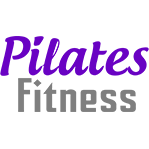Frequently Asked Questions
What is Pilates?
Pilates is developed by Joseph H Pilates (1880 – 1967) and originally named as Body Contrology. The Pilates exercise conditions the entire body using 6 key principles – proper alignment, centering, concentration, control, precision, breathing and flowing movement. This unique set of more than 500 different Pilates exercises on various Pilates equipment is practised by more than 11 million people worldwide today.
Pilates is a full-body, low-impact exercise that strengthens muscles while improving postural alignment, coordination, balance and joint flexibility. Pilates can be performed with or without Pilates equipment. You can do Pilates exercises on a Pilates mat anywhere or on special Pilates equipment like Pilates Reformer, Pilates Chair, Cadillac or Ladder Barrel.
Key benefits of Pilates:
- Pilates is a full-body workout that has zero impact on the joints; so it can be practiced daily without causing any injuries. It is suitable even for the injured – many physiotherapists work with Pilates Instructors for the rehabilitation journey of their clients.
- Pilates focuses on functional movements that requires core strength. It is an excellent way to build strength, balance, stability, coordination and mobility, all in a single class.
- Pilates improves bad postures and reduces the bodyaches due to incorrect posture and muscle imbalances.
- Pilates builds mind-body connection and helps to reduce symptoms of depression, anxiety and fatigue. Over time, one can experience an increase in energy as well as stronger physical and mental endurance. Many Pilates practitioners also enjoys higher quality of sleep.
- Pilates classes at Pilates Fitness are intensified to promote body fat burning in a safe way, suitable even for the obese or injured. We have worked with more than 10,000 members in their weight loss journey in the last decade..
Regardless of your gender, age or condition, Pilates will work for you!
Read more about Pilates and its history here. Or watch the history of Pilates here.

